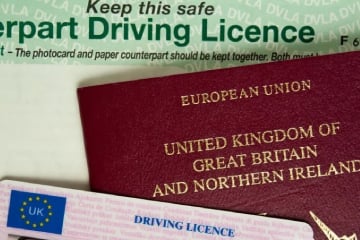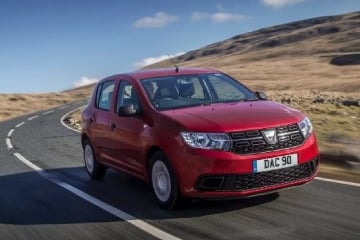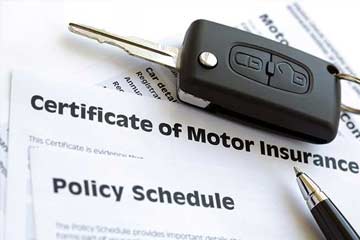-
Replacing a stolen or written off vehicle
-
Windscreen replacement
-
Key replacement if they're stolen
-
Trailer cover
-
Liability cover
What is horsebox insurance?
Horsebox insurance provides a financial safety net for the repair or replacement costs of your horsebox. This might be due to fire, theft, or a road accident. It also covers third-party claims, helping you rein in those costs.
Horsebox insurance is different from horse insurance, as horse insurance covers the animal's health and wellbeing. You will need separate policies for both your horse and your horsebox if you drive it on UK roads, as horsebox insurance is a legal requirement for the vehicle itself.
It's important not to confuse horseboxes with horse trailers though. A horsebox is a motorised vehicle, whereas a horse trailer is towed behind another vehicle.
Standard vehicle insurance usually won't cover a horsebox. That's because horseboxes are specialised vehicles. Transporting horses introduces dangers not covered by a typical insurance policy, such as the safety of the animals themselves during an accident.
Types of horsebox insurance coverage
There are a 3 main coverage options when it comes to horsebox insurance:
Third-party insurance
Third-party, fire and theft
Comprehensive
Now you’ve chosen the type of horsebox policy, it's time to choose the right usage:
-
Social, domestic and pleasure: If you transport horses as part of a hobby. For example, shows, competitions, or simply for fun.
-
Business: You’ll need this if you're transporting horses as part of a business. For example, if you're taking horses to competitions and profiting from the winnings. Remember: If you transport horses for a fee, or hire out your horsebox, you’ll need ‘hire and reward’ usage.
For more short-term needs, you might want to consider temporary horsebox insurance. You can typically find policies for as little as one day or up to 28 days, depending on the provider.
Factors affecting horsebox insurance quotes
There are a number of factors that affect the cost of horsebox insurance. Let's take a look:
-
The make and model of the horsebox: The specific make, model, and age of the horsebox affect the risk and cost of repair or replacement.
-
Value: The overall value of the vehicle, including any customizations, impacts the premium.
-
Weight: Heavier horseboxes, such as those over 7.5 tonnes, might leave you saddled with higher premiums.
There are also factors related to the driver to consider:
-
Age and experience: The ages and driving experience of any named drivers on the policy affect the risk profile.
-
Claims history: A history of accidents or claims on your driving record can lead to higher premiums.
-
Driving abroad: Driving the horsebox outside your home country also influences the quote.
-
Intended use: Whether it's for personal use or for business.
It's also worth considering Hire and Reward horsebox insurance.
Hire and Reward (H&R) horsebox insurance is a type of cover that legally allows you to transport other people's horses or to hire out your horsebox in exchange for a fee or payment.
It is a legal requirement to have H&R cover if you are doing so, and it protects you against the costs of accidents, damage, and potential injuries to third parties. This is different from personal or business use, where you only transport your own horses for hobby or business purposes.
Additional coverage options to consider
Like most insurance policies, there are a number of additional coverage options. Whether they're right for you depends on your personal circumstance.
You might want to consider breakdown cover, which provides roadside help for your horsebox, including recovery services and even towing. So don't stirrup trouble - make sure you're covered against disaster.
It might also be worth considering temporary or short-term insurance if you'll only be driving the horsebox for a brief period.
Other optional extras include:
Legal protection: Legal protection can be added to horsebox insurance to cover legal expenses and claims arising from an accident, such as defending against prosecution costs and covering uninsured loss recovery. It is separate from the minimum legally required third-party liability, which covers property damage and bodily injury to others, and is particularly important for business users to cover legal liability for horses in their care.
Equipment cover: Horsebox insurance can cover installed audio, visual, and navigation equipment. Though this often depends on the policy type and whether the equipment is factory-fitted or not. Typically, comprehensive policies provide coverage for built-in equipment like these, but you should always check the specific policy terms and conditions to understand the coverage limits and any exclusions.
What does horsebox insurance cover?
The list below highlights the general inclusions and exclusions when it comes to horsebox insurance. But always check your policy documents first, as individual policies can be different:
But hold your horses - the level of cover might differ when travelling abroad. Some policies only offer third party cover whilst you're out of the country, even with comprehensive cover in the UK. Some insurers will offer upgrades to get fully comprehensive insurance abroad though.
Horsebox insurance also won't cover horses in the event of an accident. You'll need a horse insurance policy for that. Buying pet insurance is a great way to give yourself peace of mind that your animal is covered against unexpected vet bills. Vet treatment can be pricy, but don't bolt. Our vet treatments guide outlines the average cost of standard procedures and vet care. As well as how buying the right pet insurance policy can protect you against hefty fees.





